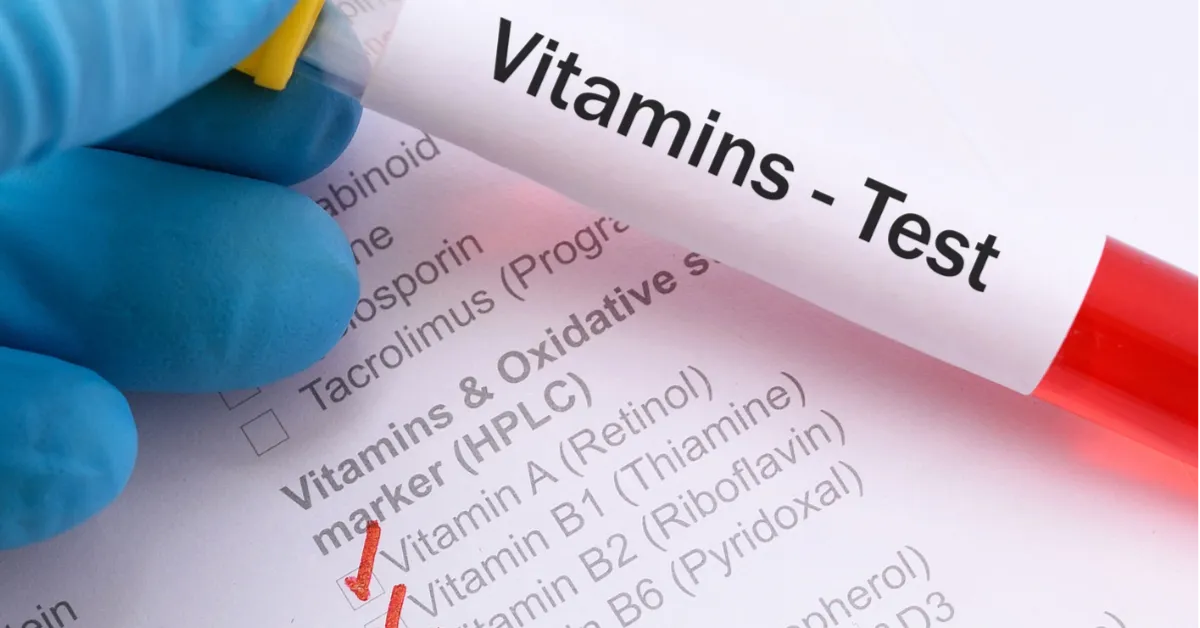EN 16143 Vitamin K Measurement in Processed Vegetables
The European Standard EN 16143 outlines the procedure for the determination of vitamin K in processed vegetables. This standard is pivotal for ensuring accurate and reliable measurement, which is crucial for maintaining product quality and compliance with international food safety regulations.
Vitamin K plays a vital role in blood clotting and bone metabolism. Its presence in processed vegetables can significantly influence their nutritional profile, making accurate quantification essential for both producers and consumers. This service ensures that the vitamin content meets specific regulatory requirements and market standards.
The testing process involves several critical steps including sample preparation, extraction of vitamin K, and chromatographic analysis using high-performance liquid chromatography (HPLC). The standard specifies detailed procedures to minimize errors and ensure reproducibility. Compliance with this method is mandatory for those in the food industry who need to demonstrate adherence to international standards.
The EN 16143 procedure ensures that processed vegetables contain the correct amount of vitamin K, which is essential for maintaining product quality and safety. This service helps companies meet regulatory requirements and enhances consumer trust through reliable testing methods.
Why It Matters
The accurate measurement of vitamin K in processed vegetables using EN 16143 is crucial for several reasons:
- Regulatory Compliance: Ensures that products meet the strict quality and safety standards set by international bodies like the European Commission.
- Consumer Trust: Provides assurance to consumers about the nutritional content of their food, thereby enhancing brand reputation.
- Quality Assurance: Helps in maintaining consistent product quality across batches, thus ensuring uniformity in taste and texture.
Beyond these benefits, accurate vitamin K measurement also supports innovation within the industry. By understanding the exact levels of vitamin K, food manufacturers can develop new products that better meet consumer needs while staying compliant with regulations.
Scope and Methodology
The scope of EN 16143 is to provide a standardized method for the determination of vitamin K in processed vegetables. The methodology involves several key steps:
- Sample Preparation: This step includes washing, chopping, and homogenizing the vegetable samples.
- Vitamin Extraction: Extraction is performed using a solvent that selectively removes vitamin K from the sample while leaving other components intact.
- Analysis: The extracted vitamin K is then analyzed using HPLC, which separates it based on its unique properties allowing for precise quantification.
The standard provides detailed guidance on each of these steps to ensure that results are consistent and accurate. Compliance with EN 16143 ensures that the testing process is robust and reliable.
| Step | Description |
|---|---|
| Sample Preparation | Involves washing, chopping, and homogenizing to ensure uniformity in sample composition. |
| Vitamin Extraction | Uses a solvent that selectively removes vitamin K without affecting other components of the sample. |
| Analytical Methodology | Involves HPLC, which separates and quantifies vitamin K accurately. |
The standard also includes acceptance criteria for the results obtained from this method. These criteria ensure that only samples meeting these standards are considered acceptable for market release or further processing.
Industry Applications
- Nutritional Analysis: Used to determine the exact amount of vitamin K in processed vegetables, ensuring product labeling is accurate and compliant with regulations.
- Quality Control: Helps in maintaining consistent quality across different batches by providing reliable data on vitamin K content.
The EN 16143 method finds extensive application in the following areas:
- R&D: Supports research and development efforts to create new products that better meet consumer needs while adhering to regulatory standards.
- Safety Assurance: Ensures that processed vegetables are safe for consumption by accurately measuring vitamin K content.
The results from this method can be used in various ways. For instance, it allows food manufacturers to adjust their production processes to achieve the desired levels of vitamin K in their products. This not only ensures compliance with regulations but also helps in meeting consumer expectations regarding product quality and safety.





